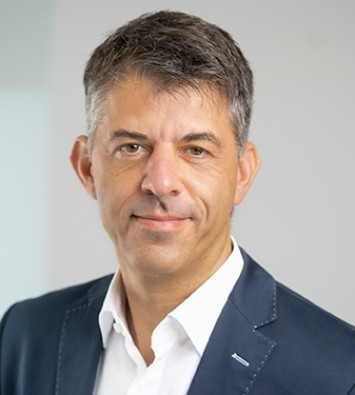With this investment package, thyssenkrupp Steel is underpinning its claim to technology and quality leadership, and strengthening its position in the European market:
The new and rebuilt facilities will enable thyssenkrupp Steel to optimally meet the changing needs of the market, e.g. demand for tighter tolerances as well as thinner and wider products. In principle, the investments in the production sites make an important contribution to the targeted climate-neutral steel production – and thus to the current transformation of thyssenkrupp Steel in general.
A continuous casting plant with downstream hot strip mill and fully automated slab logistics is ramping up at the Duisburg site. The project is the largest single construction measure within the entire investment package. The former casting and rolling mill in Bruckhausen was shut down at the end of October 2024 and partially dismantled to make room for the new plant components. Until recently, up to 1,000 employees from thyssenkrupp Steel and partner companies were working on the construction site every day to erect the new buildings and aggregates. The new high-tech plants rolled their first slabs in July 2025. The modernization will allow the plant's casting and rolling capacities to be increased and the capacity utilization of the upstream steel mill to be improved. In addition, the process-optimized plant technology based on Industry 4.0 solutions will allow the portfolio of ultra high-strength steels and premium surfaces to be expanded. Customers can expect significant quality improvements, more flexible slab production and lasting positive effects on their schedule and supply reliability.
With the start-up of the new annealing and insulating line in January 2025, the modernization of the Bochum site is now largely complete. The modern and energy-efficient system enables the production of electrical sheets up to 0.2 millimetres thick with particularly homogeneous mechanical and magnetic properties. They are specially designed to meet the requirements of highly efficient motors, which are primarily used in electric vehicles. The rolling mill upstream of the annealing and insulating line, a double reversing stand installed on the basis of the latest technology, has already been completed. The two new units will be complemented by a new electrical steel strip inspection line and a finishing line that has now been commissioned to cut the finished sheets and assemble them for customers. The finishing line is scheduled to go into operation in 2027. In future, the new annealing and insulating line will be able to produce up to 200,000 tons of non grain oriented electrical steel per year.
Contact

Mark Stagge
Head of Public & Media Relations, thyssenkrupp Steel Europe